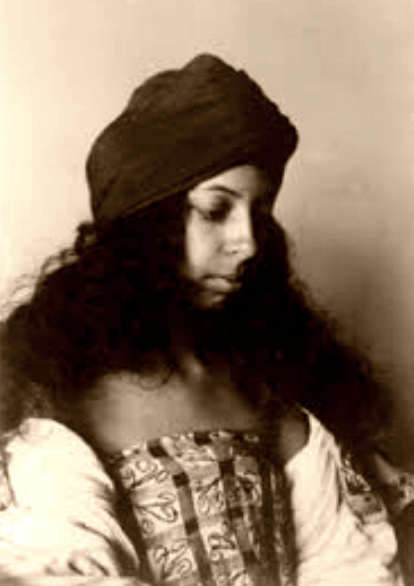See also...
Authorizations, license
-
Visible by: Everyone -
All rights reserved
-
44 visits
Angelina Weld Grimké


Angelina Weld Grimké was born in 1880 to a prominent biracial abolitionist family from Boston, Massachusetts. Her father was Archibald Grimké, the son of white plantation owner and enslaver, Henry W. Grimké and an enslaved woman Nancy Weston of mixed race. Her mother Sarah Stanley was from a middle-class Midwestern family. Grimké's parents split when she was just 3 years old, and although she initially lived with her mother, at 7 she was returned to her father's care and never saw her mother again. Raised by her well-off father, who was a lawyer and the executive director of the National Association for the Advancement of Colored People (NAACP), Grimké was educated at some of the best schools in Massachusetts. She became an English teacher in her early 20s, working at the Armstrong Manual Training School and what would later become Dunbar High School, both in Washington, D.C.,
Most of her writing was done over the next 25 years, which she spent teaching English in Washington, D.C.
The NAACP produced her best-known work, the play 'Rachel,' in March 1916. 'Rachel' was the first play by an African American that was meant to be staged (in contrast to earlier costume dramas which were simply read aloud). Both 'Rachel' and Grimke's second play dealt with themes of racial injustice. Grimke's poetry was included in such works as Alain Locke's The New Negro and Countee Cullen's Caroling Dusk.
Her poetry dealt with more conventional romantic themes, often marked with frequent images of frustration and isolation. Recent scholarship has revealed Grimke's unpublished lesbian poems and letters; she did not feel free to live openly as a gay woman during her lifetime. Grimké died in 1958 in New York City. Her work is considered to have helped set the stage for the Harlem Renaissance.
Sources: Moorland Spingarn Research Center Publications Moorland-Spingarn Research Center; Alexander Street: Biographical Sketch of Angelina Weld Grimke, 1880-1958
Most of her writing was done over the next 25 years, which she spent teaching English in Washington, D.C.
The NAACP produced her best-known work, the play 'Rachel,' in March 1916. 'Rachel' was the first play by an African American that was meant to be staged (in contrast to earlier costume dramas which were simply read aloud). Both 'Rachel' and Grimke's second play dealt with themes of racial injustice. Grimke's poetry was included in such works as Alain Locke's The New Negro and Countee Cullen's Caroling Dusk.
Her poetry dealt with more conventional romantic themes, often marked with frequent images of frustration and isolation. Recent scholarship has revealed Grimke's unpublished lesbian poems and letters; she did not feel free to live openly as a gay woman during her lifetime. Grimké died in 1958 in New York City. Her work is considered to have helped set the stage for the Harlem Renaissance.
Sources: Moorland Spingarn Research Center Publications Moorland-Spingarn Research Center; Alexander Street: Biographical Sketch of Angelina Weld Grimke, 1880-1958
- Keyboard shortcuts:
Jump to top
RSS feed- Latest comments - Subscribe to the comment feeds of this photo
- ipernity © 2007-2025
- Help & Contact
|
Club news
|
About ipernity
|
History |
ipernity Club & Prices |
Guide of good conduct
Donate | Group guidelines | Privacy policy | Terms of use | Statutes | In memoria -
Facebook
Twitter










